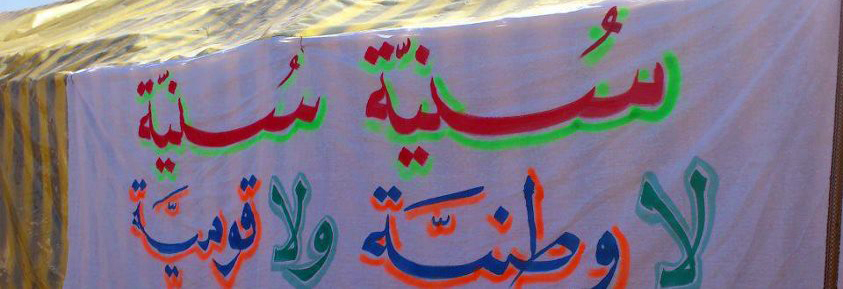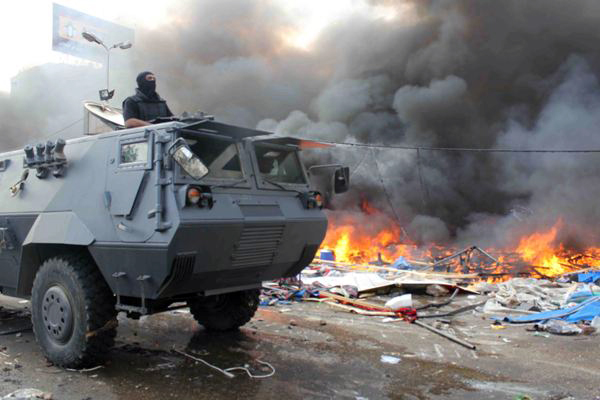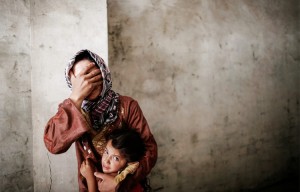
The Honorable Sunni Sect

Enab Baladi Issue # 87 – Sun, Oct. 20, 2013
Sectarian conflicts have existed since the dawn of history; events unfolding before our eyes today can be easily traced back to the early days of Islam. It is true that these rifts were not always as sharply pronounced as they are today, yet they have always been there, rearing their head occasionally whenever political, social and economic circumstances allowed. It should be noted that the approach to the sectarian question often lacks the objectivity and neutrality called for in any accurate method of research. In the final analysis, any researcher is the product of his/her environment and sect. The sect is often preoccupied with standing up to hostile environments or countering military, doctrinal or ideological attacks.
A close follow-up to the subsurface details of sectarian strife reveals that the strife leaves tis distinct marks in the sub-consciousness, consciousness and conduct of members of the community, further complicating the approach to and study of this phenomenon. The reader’s sensitivity towards the subject also complicates the study. The reader could accuse the researcher of sectarian allegiances or of compromising the rights of the sect. “Sunnis are not a sect. They are the nation”, says Azmi Bishara. He then sets as a condition for the fulfillment of nationhood that Sunnis not act as a minority.
Minorities’ reactions to the majority are stereotypical of minority behavior. This behavior is often a reaction to the attitude of the majority. Minorities strive to create a small community within the society at large, one in which they can practice their ceremonial rites and traditions more freely. The more tyrannical the majority the more entrenched the minority community becomes within the society at large. Minorities seem to be increasingly determined to distinguish their community by their choice of names, dialects, traditions and customs. Minorities are more introvert and rigid and often adopt a unified position vis a vis grave events. This is in stark contrast to the majority which sees no threat to its existence and is therefore less rigid and less introvert. The reaction of the majority to events is often varied and less rigid. Its positions are not homogenious and at times contradictory. It is not monolithic as is often the case with minorities.
A study of the history of confessional strife confirms that politics were its major catalyst. A minority in one state is often a majority in others which at times creates loyalties and allegiances to foreign entities. The geopolitical mismatch created deliberately by Sykes-Picot added insult to injury.
The way in which the majority deals with the minority could either foment a minority feeling among the ranks of the latter or provide members of minority communities with the assurances of coexistence and total assimilation in society. It follows that it is perfectly normal for the majority of a given country to define its national identity and culture. It is also possible that the person who would govern that country would not belong to the majority but would definitely respect its culture, history and tradition.
Observing the unfolding strife in Syria, or more accurately in the Levant and Iraq leads one to realize that we are witnessing a unique historical phenomenon. The states of the region have been reduced into a congregation of minorities. Sunnis no longer feel that they are the majority which ruled these countries for hundreds of years. Sunnis have been governed by Jews in Palestine for the past sixty years, by Maronites in Lebanon then by Shiites for fifty years, by Alawites in Syria for forty years and have been under Shiite rule in Iraq for ten years. Sunnis are demanding foreign intervention to protect themselves from the tyranny of the minorities. Whenever the opportunity presents itself, they assert their identity or Sunni affiliation through declarations establishing a battalion, a brigade, an army or a political, relief organization or other group. Sunnis feel that their existence in the region is threatened and that someone is determined to uproot them from their land and sever their ties to their history. Regrettably this is true to a great extent. But it is also the reason why their behavior typically follows the pattern of minority behavior despite the fact that they are the majority.
Falling into the trap of minority mentality would be destructive for Sunnis. This tunnel to which they may be deliberately led will condemn the region to endless wars. Bypassing the minority frame of mind is the prelude to bypassing sectarian mentality in general. Short of that, the region’s future can only bring more raging wars.
اذا كنت تعتقد/تعتقدين أن المقال يحوي معلومات خاطئة أو لديك تفاصيل إضافية أرسل/أرسلي تصحيحًا
إذا كنت تعتقد/تعتقدين أن المقال ينتهك أيًا من المبادئ الأخلاقية أو المعايير المهنية قدم/قدمي شكوى
-
تابعنا على :





















